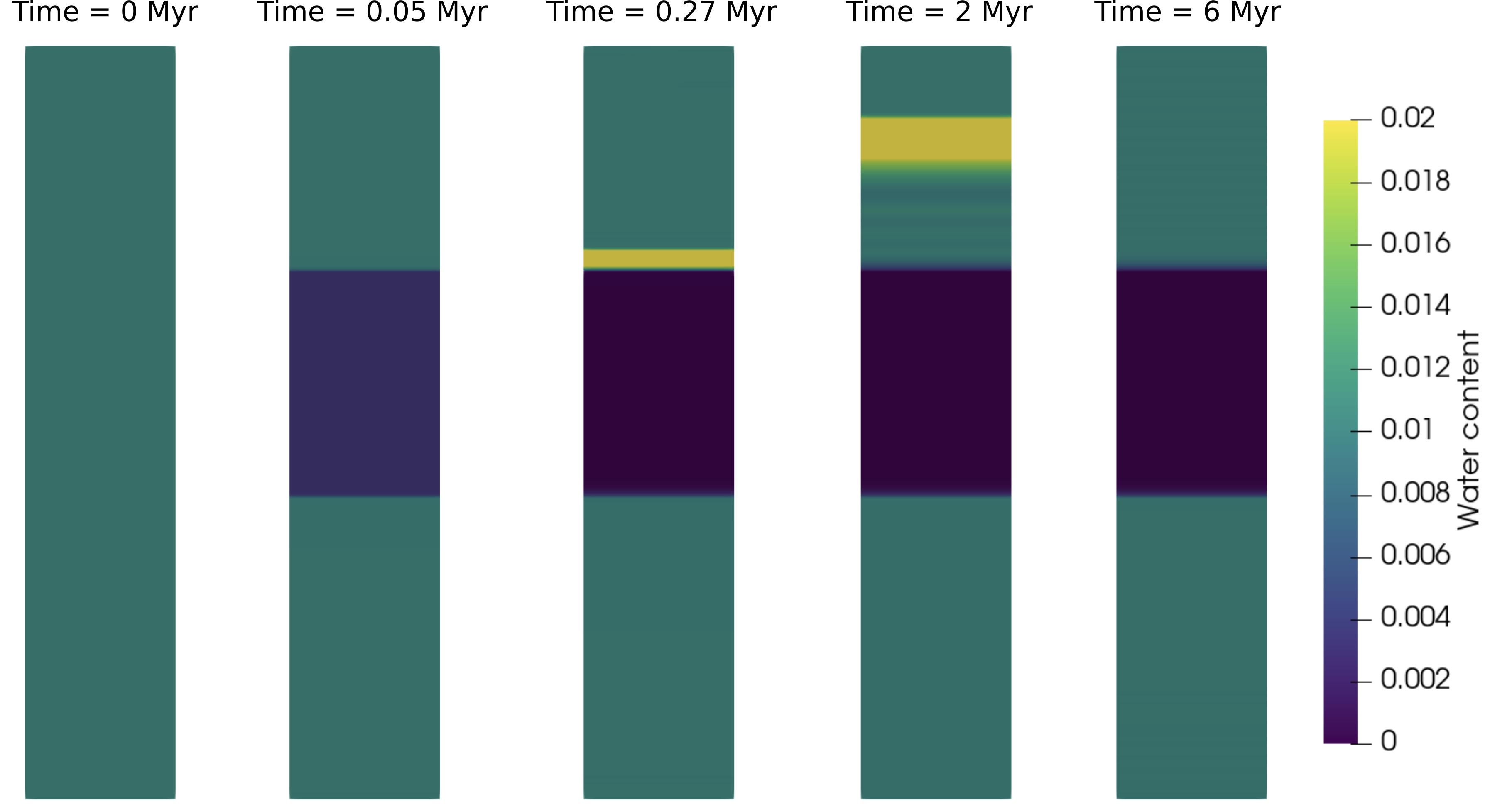
 |
| August 2023 Volume 12 Issue 3 |

Many of CIG’s large flagship codes – for example Rayleigh, PyLith, SPECFEM, and ASPECT – solve partial differential equations. There is of course a long history of writing such codes and part of this history is that traditionally, PDE solvers have hand-rolled their own time integrators and nonlinear solvers: Exceptions – such as PyLith – notwithstanding, they generally use low-order time discretization methods (such as explicit or implicit Euler, Crank-Nicolson, or BDF-2) with time-step sizes based on CFL numbers rather than accuracy considerations; and they implement nonlinear solvers via fixed point iterations or relatively simple variations of Newton’s method, but without sophisticated line search, trust region, or acceleration methods.
This reliance on hand-written methods is perhaps surprising because we have all learned that at least for the discretization of PDEs, we should build on one of the widely used software libraries that provide everything one needs for the task: ... [full article]
Dear Community,
This year summer brought both the heat and a flurry of activity.
CIG organized planning and coding meetings over the summer in support of ASPECT, PyLith and Rayleigh (and SPECFEM in Fall 2022). A total of 53 individuals participated in these activities. CIG also supported the 2023 CIDER Summer Program on plate boundary science with lectures and tutorials on rifting processes and modeling exercises using ASPECT. It was exciting to meet the next generation of scientists and will be more exciting to watch their careers grow in the upcoming years.
As we begin planning for 2023-2024, we look to strengthening our ties across Earth science communities. We will offer a workshop at SCEC this Fall (see below) to encourage sharing and receiving credit for software. Collaborating with CSDMS, SZ4D and community members on furthering model interoperability will bring together this coming spring a interdisciplinary group of researchers in computation, mathematics and science. Look for more announcements as plans develop.
CIG's mission "to provide the infrastructure for the development and dissemination of software" embodies our interest and commitment to the community. We are engaged in outreach and building quality software and their communities. See our collaboration policy to learn about ways CIG can facilitate your research projects. Going forward, collaborations with the community will strengthen our availability to address pressing cross-cutting issues that face us globally. Don't hesitate to contact us with your ideas to bring our communities together and further better software for our community.
Bruce Buffett & Lorraine Hwang, coDirectors
See the complete collection of executable notebooks by navigating to Software > Launch You must be logged in to your user account to launch a tool.
Have a notebook you are interested in sharing with the community?
Please contact us to discuss creating a new resource
for the community.
Nominations are now open for this year's elections - 1 seat is open on the Executive Committee and 3 on the Science Steering Committee. We thank Alice Gabriel for her leadership on the EC and SSC members Ebru Bozdag, Sylvain Barbot, and Emmanuel Njinju (early career) for their contributions to the community. Email the Nominations Committee your nominations for these key governance positions. A candidate can be placed on the slate by the Nominating Committee or by nomination by three Member Representatives. [email]
CIG Monthly Webinars are the second Thursday of the month at 2P PT unless otherwise noted. Look for announcements this Fall for 2023/2024 webinars.
Register by August 9 for the online workshop. You must register, apply, and attend Part I to attend Part II. [more info]
| I: August 10 | Zoom | |
| II: September 9 | Palm Springs, California |